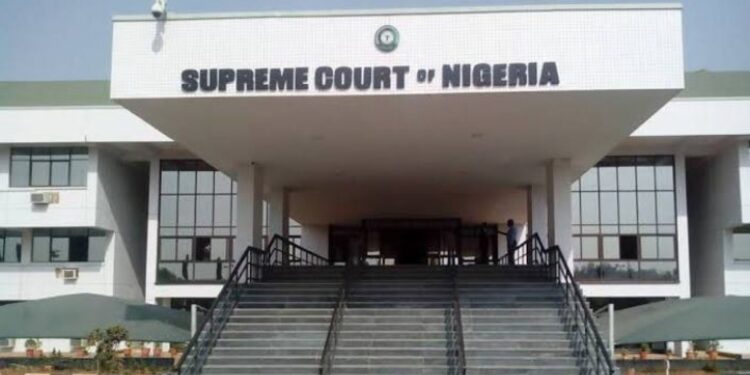In a significant legal development, the Supreme Court of Nigeria has rejected an application by former presidential candidate Atiku Abubakar and the Peoples Democratic Party (PDP) to introduce fresh evidence related to President Bola Tinubu’s educational qualifications. The case revolves around the authenticity of Tinubu’s diploma from Chicago State University (CSU).
The application, which sought to present the deposition of CSU’s Registrar, Caleb Westberg, was dismissed by the Supreme Court on the grounds that it exceeded the 180-day timeline for the determination of election petitions. Justice Inyang Okoro, who delivered the verdict on Thursday, emphasized that the Supreme Court’s jurisdiction could not be invoked after the stipulated timeline had elapsed.
The case was heard during the appeal proceedings against Bola Tinubu’s victory at the Presidential Election Tribunal Court (PEPC). Notably, the judge pointed out that since the time for trial at the Court of Appeal had already lapsed, the Supreme Court could not entertain fresh evidence in the appeal.
This legal development comes as a significant setback for Atiku Abubakar and the PDP, who had sought to challenge the authenticity of President Tinubu’s academic credentials as part of their election petition. The case has garnered substantial attention and political implications, particularly in the context of Nigerian electoral politics.
While this ruling settles the matter at the Supreme Court level, the political discourse surrounding the validity of academic credentials in Nigerian politics may continue to reverberate as the country’s political landscape evolves.










